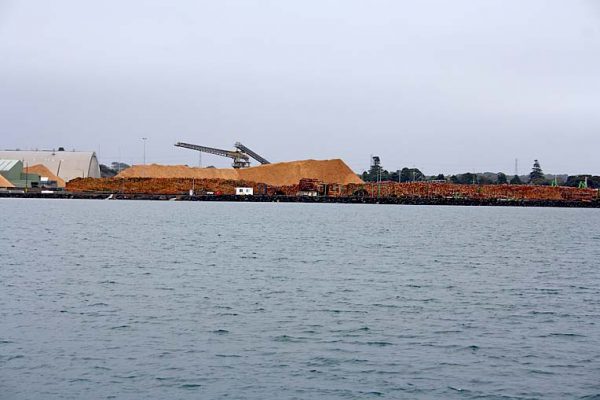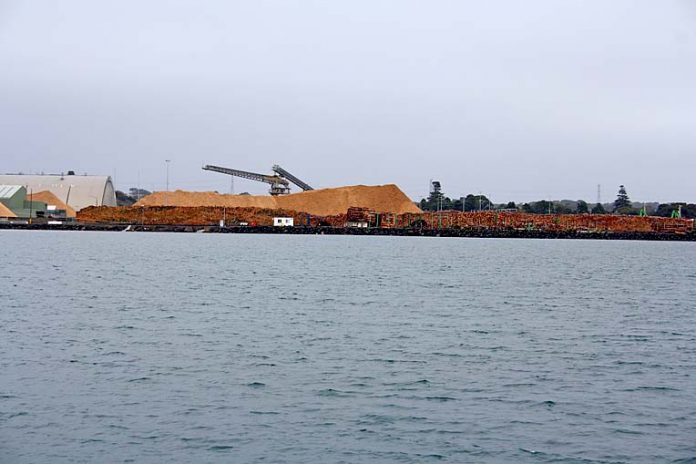
A DECLINE in the number of Chinese woodfibre exports ships anchoring at the Port of Portland has triggered a reduction in hours for some workers in the region’s harvesting and haulage sector.
While the issue has yet to lead to significant lay-offs or redundancies, it is resulting in less overtime for some employees in the industry.
It is understood the export bulk carriers – normally en route to the Port of Portland – are being diverted to other countries that have maturing plantations.
The news follows a boom period for the region’s woodchip and log export sector.
Construction Forestry Maritime Mining and Energy Union spokesperson Brad Coates – who is the Green Triangle secretary in the manufacturing division – said the union had received reports some employees had seen overtime reduced.
But he said there had been no reports of “mass lay-offs” in the sector.
Mr Coates said he understood the issue was affecting a number of haulage and harvesting companies.
“Some employees have been told to take leave or directed to other tasks,” the union leader said.
Mr Coates said it appeared demand for Green Triangle woodfibre remained strong but the issue was related to the availability of export ships.
He said forest growing countries – such as Brazil, South Africa and South America – were now at a stage where their plantations were maturing.
“My understanding is the Port of Portland is waiting on ships to come in,” Mr Coates said.
He said the issue highlighted the fact employees should not rely on over-time payments given the cyclical nature of the forestry sector.
Mr Coates said a downward trend in the domestic housing market was fuelling a “slow down” in the regional processor sector.
He said a number of production sites have scheduled non-production days and longer Christmas shut down periods.
According to the union spokesperson, the economic climate had thrown the issue of insecure work into the spotlight.
He said people employed as casuals or labour hire were the first to be told there was no work when demand tumbled.
“They are the first to be told not to come in,” Mr Coates said.
The timber leader said there was also a possibility the US and China trade war – which is heating up – could impact on the sector moving forward.
The Port of Portland has a policy not to release woodfibre export figures to the media, but it does make public shipping movements available on its website.








